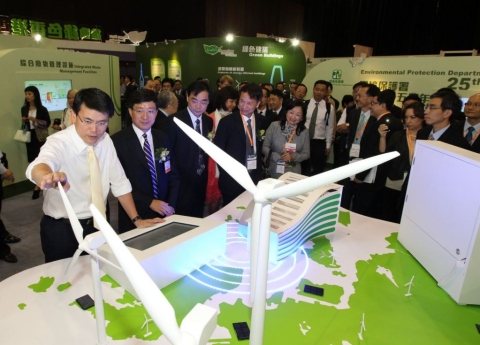Space Sold at Asian Trade Fairs in 2017 Grows Faster than Forecast

UFI, The Global Association of the Exhibition Industry, released the 14th edition of its Trade Fair Industry in Asia annual report, covering 17 markets including Greater China and Southeast Asian markets, Japan, Korea, India, Pakistan, Australia, Cambodia and Myanmar.
The report provides complete data on these regions up to 31 December 2017, with additional figures and commentary on likely trends for the following year.
Looking at the growth of Asian exhibitions in terms of net space sold, there was an average increase of 7 percent, reaching 22 million sqm. More than half of the total net space sold was in China (58 percent), totalling 13 million sqm, which is over six times the amount of space sold in Japan, Asia’s second largest trade fair market (2 million sqm).
Cambodia was the fastest growing small market, with net space sold up by 28 percent, while India was the fastest growing large market, up 11 percent from 1.07 million to 1.18 million sqm. Several other large markets reported less significant growth. Net space sold expanded by 5.1 percent in Australia and 4 percent in Taiwan.
Other Southeast Asian markets that exceeded the regional average included Malaysia (12.1 percent), the Philippines (8 percent), Thailand (7.6 percent) and Singapore (7.5 percent). Vietnam (7 percent) and Indonesia (6.7 percent) posted growth in line with the regional average.
For the first time, Korea surpassed one million net sqm sold, with a market increase of 4.4 percent. Japan’s market expanded by 2.9 percent, while space constraints limited Hong Kong’s growth to 2.2 percent, bringing it close to 1 million net sqm sold (967,750 sqm).
According to the Trade Fair Industry in Asia annual report’s forecast, by the end of 2018, the venue capacity in Asia will reach over 9 million sqm and the number of venues operating in Asia will increase to 230. In 2019, the opening of a new venue in Shenzhen, China, will add 400,000 sqm of gross indoor capacity to the regional total causing this figure to rise again.
Kai Hattendorf, UFI managing director, commented: “We are pleased to publish the 14th edition of this report. As our industry changes and evolves, UFI’s growing portfolio of research reports offers our members valuable insights into the direction exhibitions are heading and the opportunities and challenges that lie ahead.”
UFI Asia-Pacific Regional Manager and BSG Managing Director, Mark Cochrane stated: “The trade fair industry in Asia strengthens year by year. Not only did the market expand by 7 percent in 2017, but there are also now four markets with over 1 million net sqm sold – China, Japan, India and Korea.”
He added, “Hong Kong and Taiwan are poised to surpass that milestone in the next few years. All of this reinforces Asia’s position as one of the most dynamic trade fair markets worldwide.”
The 14th edition Trade Fair Industry in Asia annual report provides detailed information on the development of trade fairs and supporting facilities in 17 markets: Mainland China, Hong Kong, Macau, Australia, India, Indonesia, Japan, South Korea, Malaysia, Pakistan, Philippines, Singapore, Taiwan, Thailand, Cambodia, Myanmar and Vietnam.
The report also includes analysis on actual market performance in 2017 as well as forecasts and commentary on key trends in each market.
The research was once again undertaken for UFI, the Global Association of the Exhibition Industry, by Business Strategies Group (BSG) in Hong Kong.
As an added-value service, each UFI member is entitled to receive an executive summary of the research and to purchase the full report at a substantial discount. For more information on this report, please contact UFI in Asia at:
UFI Asia-Pacific Office, Suite 4114, Hong Kong Plaza, 188 Connaught Road West, Hong Kong Tel: +852 2525 6129 Fax: +852 2525 6171 email: [email protected]


Add new comment